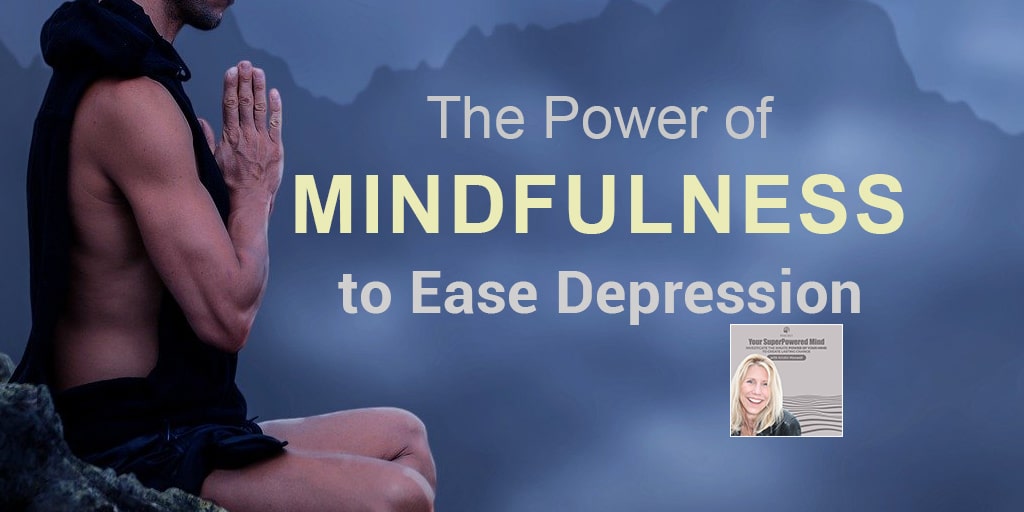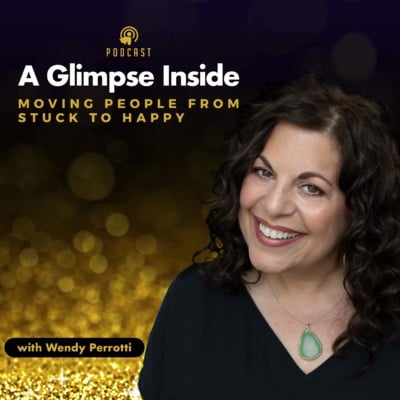
Hello everybody. Welcome to Your SuperPowered Mind. This is Kristin Maxwell, and in this show, we explore the process of transformation and give you tools and strategies that you can use to transform your own life. Today, I’m going to be talking to Dr. Stuart Eisendrath about the Power of Mindfulness to Ease Depression. Dr. Eisendrath is the founding director of the University of California San Francisco Depression Center. He is also the author of When Antidepressants Aren’t Enough: Harnessing the Power of Mindfulness to Alleviate Depression, a senior clinician and research psychiatrist at UCSF. His lectures on mindfulness-based cognitive therapy for University of California TV have been viewed more than 1.5 million times. Dr. Eisendrath, welcome to Your SuperPowered Mind.
Thank you. Thanks for having me.
Yes. I’m very excited to have you because depression is something that is everywhere or in many places, and you seem to know depression with studying it. I guess where I want to start is to ask you, first of all, what superpower did you uncover as the result of mastering your mind?
Well, I’d say a primary power has been the manner of which you can decenter from your thoughts, feelings and sensations. Decentering is gaining some distance from those things. In other words, you can identify with your observing self so that you can observe yourself experiencing those thoughts and feelings and sensations. It’s kind of like you’re in a town that has a series of storefronts, and there may be certain negative thoughts, for example, in those storefronts. Of course, negative thoughts are very common in depression. With depression, you might go into the store and buy those negative thoughts, accept them as if they’re facts, and then go on your way feeling more depressed, but as you gain the ability to decenter from those thoughts, you can walk down the street. You still notice the thoughts, but you don’t have to go in the store and buy them. So, in that sense, you start to decenter from those thoughts and basically change your relationship to them. So, you’re not a slave to the thoughts. You can focus more on what the facts are.
Right. So, I guess what I am curious about is because as somebody who has myself experienced … I used to have fairly significant anxiety for decades and depression. When I was in the midst of that, I felt as if I was trapped by my thoughts, as if I could not escape them, and they all felt true. So, how do you teach people or how do people learn that those facts really are not true? Does that make sense what I’m asking?
Yes. I would just revise that slightly to say that those thoughts are not true. Thoughts are different from the facts. So, for example, if you’re doing a meditation focusing on your breath, your mind is going to be popping up thoughts just like a popcorn popper. If you’re depressed or anxious, there are going to be depressed or anxious thoughts. For example, in depression, there are many negative thoughts that occur. I’m no good. I’ll never be successful. I’m not as good as my friend, and people are more successful than me. You might even have the thought, others are meditating better than me if you’re in a class.
Right.
What you learn is those thoughts are not facts. They’re just thoughts, mental events that you’re having. So, for example, if you have one of those thoughts, you can let that thought pass by and bring your attention back to the object of attention. Say, if you’re meditating on your breath and focusing your attention on your breath, you can allow yourself to have a thought and then gently escort your attention back to the breath and in that sense, begin to learn how you may treat those thoughts a little bit differently, but a little bit differently has a major impact on your life because you’re no longer a slave to them.
Right. Yes. I think there is a sense of when you are in your thoughts in depression or anxiety, in your thoughts, there’s a way in which if the thought comes up, you feel like you need to talk yourself out of the thought or engage with it. So, you’re saying that people can learn to see that the thoughts there and not get sucked in by it sort of?
That’s exactly right because for example, I’ve had depression myself and also migraine headaches and pain in general, whether it’s emotional pain or physical pain is something that you can learn to decenter from. For example, once, I was having a pretty severe migraine headache, and the first thought is, “Oh, this is terrible. How can I function like this? I’ve got a big talk, maybe a big podcast I have to do in the next day, and how’s it going to be if I’m like this?” Then, I began to decenter from it. By that, I mean I adapted a position where I could say I could observe myself having the headache. Instead of just being stuck with a headache, I could actually … It was as if I was looking down on myself having a headache. That allowed me to dramatically feel less pain because it’s like observing somebody else having the pain. Having that ability to decenter from the sensations and that experience has a dramatic effect on how you feel about it.
Yes. Yes, and as you’re talking, it’s reminding me that I learned at some point and it still comes up for me sometimes, is I will have a thought of I don’t fit in like when I’m with a group or I’m not doing this right. I have learned that that is my pattern to go into that way of thinking whether … Who knows whether it’s true or not? Maybe it is in some cases. Maybe it’s not, but that’s my pattern no matter what. So, when I can look at that and say, “Oh wait, that’s just my pattern,” then I’m able to put it away a little bit like, “Oh, I don’t have to think about that.” So, that’s-
That’s right, that you’re able to gain some distance from that and see that that’s really just a thought. It’s not a fact that you don’t fit in. It’s a thought that you don’t fit in, and you don’t have to be beholden to that thought. You can just view it as a mental event is going on and give yourself a little more time to say perhaps, is that a fact or is it just a thought I’m having?
Right. Given the fact that it comes up and over and over and over again, I can sort of say, “Oh, that’s just what I do. That’s just what I do, and aren’t I silly, like don’t do that.” So, we have to go to a break. So, before we go to a break, and I want to go into really talking more about how people can get into mindfulness to ease the depression, but where can people learn about your work?
Well, the best place, I’d say, is my recent book that came out earlier this month. It’s called When Antidepressants Aren’t Enough: Harnessing the Power of Mindfulness to Alleviate Depression. It’s available on Amazon, Barnes & Noble, and IndieBooks. People can go to my website, www.stuarteisendrath.com. Either of those will have a great deal of information about mindfulness and how it can help with depression and anxiety.
Great. In the notes, we’ll have the spelling of your name so people can find that too. So, hang on. We’ll be back in a moment.
To listen to the entire show click on the player above or go to the SuperPower Up! podcast on iTunes.
Podcast: Play in new window








